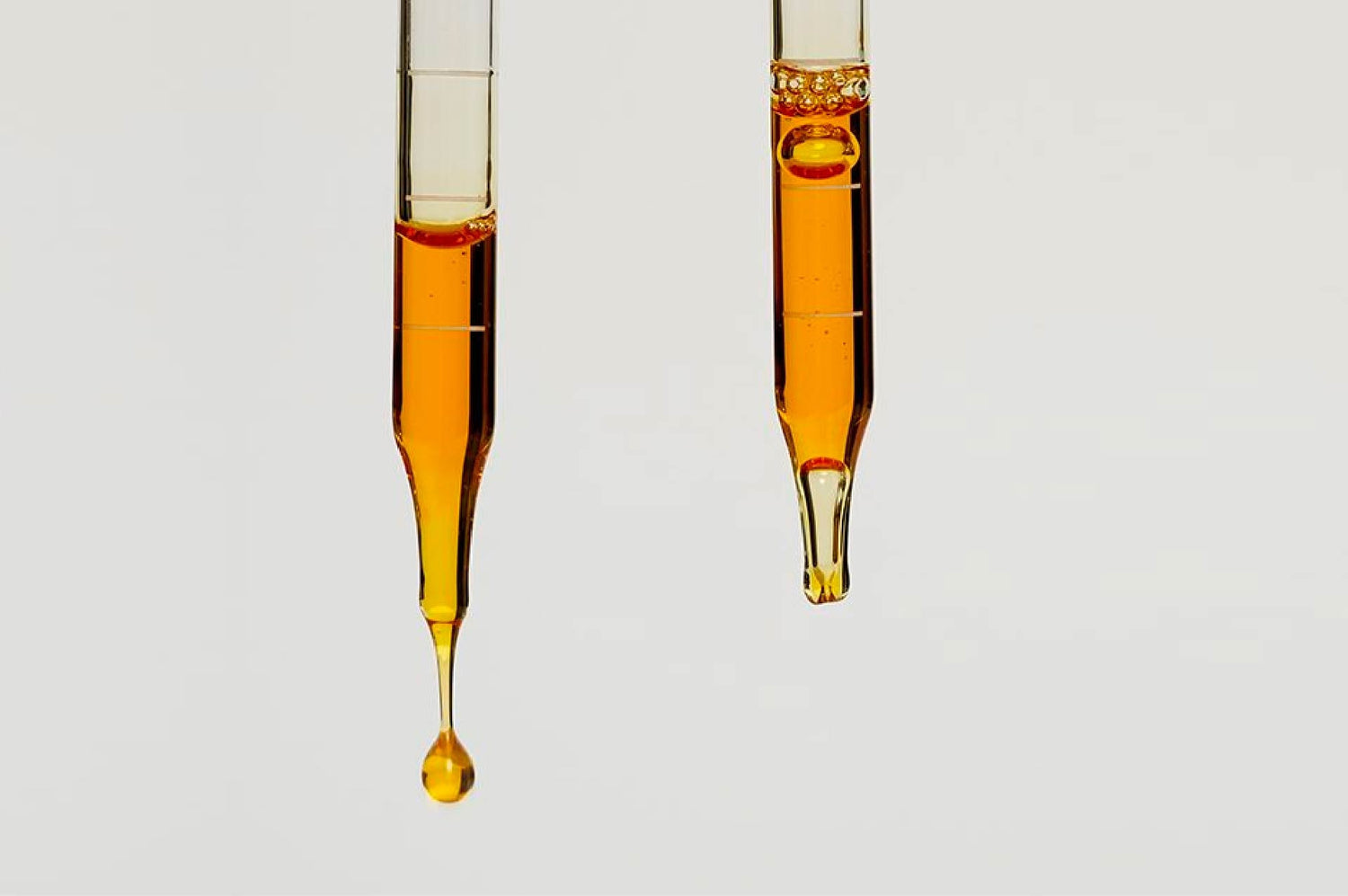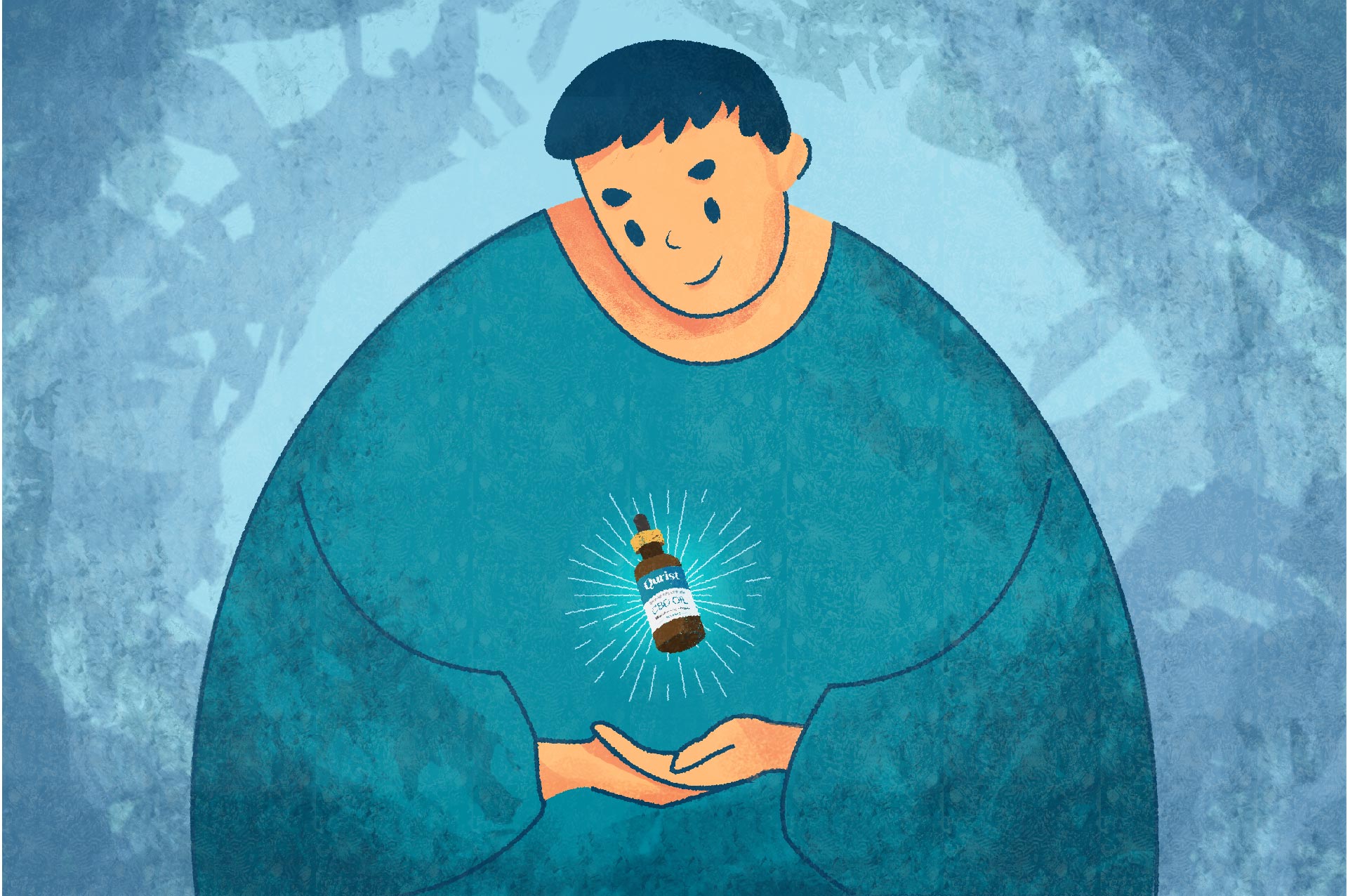In a world increasingly inclined toward holistic well-being, CBD oil has emerged as a celebrated remedy, promising many potential benefits for both body and mind. Yet, like any powerful substance, it is crucial to understand both its virtues and its potential pitfalls.
In this blog, we will delve into the universe of CBD oil, exploring its remarkable advantages and the possible side effects, ensuring you have all the necessary knowledge to make informed decisions about incorporating it into your daily routine.
Key Benefits Of CBD Oil
Pain Management
CBD, a natural compound extracted from the cannabis plant, works in harmony with your body's internal regulatory system, the endocannabinoid system. This system, often referred to as the body's "master regulator," plays a pivotal role in how we perceive and manage pain.

Recent research has illuminated the incredible potential of CBD in this regard, positioning it as a beacon of hope for individuals grappling with chronic pain conditions. Conditions like arthritis, multiple sclerosis, and even post-operative pain, which can significantly diminish one's quality of life, may find solace in the soothing embrace of CBD.
Anxiety and Stress Reduction

In our busy world, CBD oil is like a calming friend for people dealing with anxiety and stress. It has a special power to help your brain find peace and relaxation by adjusting something called serotonin.
What's amazing is that CBD can also be a big help for those with different anxiety problems, like when you're nervous around people or when you just can't stop worrying. It can even be a source of comfort for those who've been through tough times and have memories that still bother them.
As scientists learn more, they're finding that CBD has the potential to bring more calm and balance into our lives, giving hope to those who want to feel more at ease.
Sleep Improvement
In the quest for a peaceful night's rest, many have found a hopeful ally in CBD oil. For those grappling with sleep disorders, it emerges as a potential saviour, working its magic by reducing anxiety and inviting a sense of calm that can pave the way for a swift, refreshing slumber.
Emerging research suggests that CBD might hold promise in tackling more severe sleep disorders, including the often-disruptive sleep apnea.

In a world where quality sleep is a cherished commodity, CBD oil's potential as a sleep-enhancing agent offers hope to those yearning for nights filled with uninterrupted rest.
Also Read : CBD Oil in India
CBD and Cancer Patients
In the realm of natural remedies, CBD (cannabidiol) shines as a source of hope for cancer patients, offering a potential avenue for relief from the physical and emotional burdens they encounter. It's vital to clarify that CBD isn't a cure for cancer, but it does exhibit promise in addressing some of the common challenges that accompany the cancer journey.

From providing respite from chronic pain and mitigating nausea to rekindling appetite and offering solace for anxiety and depression, CBD serves as a gentle ally in the fight against cancer, casting a ray of comfort and relief upon the path to recovery. While ongoing research seeks to unveil the full scope of CBD's potential in the realm of oncology, its role in enhancing the quality of life for cancer patients stands as a significant and compelling consideration.
Epilepsy Management
Epidiolex, a groundbreaking medication infused with CBD, has earned the coveted seal of approval from the FDA for its remarkable efficacy in treating two devastating forms of epilepsy: Dravet syndrome and Lennox-Gastaut syndrome.

This pivotal moment not only shines a spotlight on CBD's potential but also offers newfound hope to those battling epilepsy, promising a reduction in the frequency and intensity of life-disrupting seizures. As science and medicine continue to unlock CBD's potential, it is becoming an increasingly vital asset in the quest for improved epilepsy management and enhanced quality of life.
Neuroprotective Effects
CBD emerges as a guardian of the nervous system, extending its protective embrace in the battle against neurodegenerative diseases such as Parkinson's and Alzheimer's.
Research suggests that CBD's unique abilities, including its capacity to curb inflammation and oxidative stress, might hold the key to slowing down the relentless progression of these conditions.
In a world where the specter of neurodegenerative diseases casts a long shadow, CBD offers a glimmer of hope, potentially enhancing the quality of life for those affected and their loved ones by providing a shield against the ravages of these formidable foes.
CBD Oil Side Effects
Dry Mouth
A common side effect of CBD oil is dry mouth, akin to the cottonmouth sensation often experienced with cannabis use. This dryness occurs because CBD can temporarily reduce saliva production. Staying adequately hydrated can help mitigate this discomfort.

Changes in appetite
CBD may have varying effects on appetite. While some individuals might experience increased hunger, colloquially known as the "munchies," others may find their appetite diminished. These effects are usually mild and transient.
Dizziness
Dizziness can occasionally rear its head, particularly when starting with higher CBD doses. To minimize this side effect, consider starting with a lower dosage and gradually working your way up.
Diarrhea
Some patients have reported digestive issues, including diarrhoea, as a side effect of CBD oil. Opting for high-quality CBD products and monitoring your body's response can help address this concern.
Potential Drug Interactions
CBD can interact with certain medications by inhibiting the enzyme cytochrome P450, which is responsible for metabolizing various drugs. If you're on medication, consulting your healthcare provider before introducing CBD is essential to ensure no adverse interactions.
Psychoactive Effects
Though non-psychoactive by nature, some CBD products may contain trace amounts of THC (tetrahydrocannabinol), the psychoactive component in cannabis. Always select THC-free CBD products or less than 0.3% THC to avoid any unwanted psychoactive effects.
How to Use CBD Oil
In a world where wellness takes centre stage, the spotlight increasingly turns toward CBD oil as a versatile and natural remedy. But with this newfound interest comes a question: How do you harness the full potential of CBD oil? Join us on a journey as we demystify the art of using CBD oil effectively.
Whether you're a newcomer curious about its benefits or a seasoned user looking for optimal results, this comprehensive guide will be your trusted companion.
Welcome to the world of CBD oil, where we'll explore its benefits, dosages, methods of consumption, and much more, ensuring you have all the knowledge you need to make the most of this remarkable gift from nature.
Methods of Using CBD Oil
Sublingual Administration (Under the Tongue)

Sublingual administration is one of the most popular methods for using CBD oil. Here's how to do it:
- Fill the dropper with the recommended dosage of CBD oil.
- Place the oil under your tongue.
- Hold it there for about 60–90 seconds to allow for absorption.
- Swallow the remaining oil.
This method allows for rapid absorption into the bloodstream, providing quick relief.
Adding to Food or Beverages

You can incorporate CBD oil into your daily routine by adding it to your favorite foods or beverages. Here's how:
- Choose an appropriate dosage.
- Mix the CBD oil into your coffee, smoothie, yogurt, or any other consumable of your choice.
- Consume as usual.
- Keep in mind that the effects may take longer to kick in when ingesting CBD with food.
Topical Application

- You can apply CBD oil directly to the affected area for localised pain or skin conditions. Here's how:
- Dispense a small amount of CBD oil onto your fingertips.
- Gently massage it into the skin until absorbed.
Topical application targets specific areas but may not provide systemic effects.
Capsules or edibles
You can opt for CBD capsules or edibles if you prefer a convenient and consistent dosage. Simply follow the recommended dosage instructions on the product label.
Finding the Right Dosage
The ideal CBD dosage varies from person to person and depends on factors like body weight, metabolism, and the severity of the condition you're trying to address. It's recommended to start with a low dosage and gradually increase it until you find the right balance that works for you. Always consult with a healthcare professional for personalized guidance.
Tips for Using CBD Oil
- Be Consistent: Consistency is key when using CBD oil. Incorporate it into your daily routine for the best results.
- Start Low and Go Slow: Begin with a low dosage and gradually increase it to avoid potential side effects.
- Keep Records: Maintain a journal to track your CBD usage, including dosages and any effects you experience.
- Consult a Professional: If you have specific health concerns or are taking medications, consult with a healthcare provider before using CBD oil.





Leave a comment
This site is protected by hCaptcha and the hCaptcha Privacy Policy and Terms of Service apply.